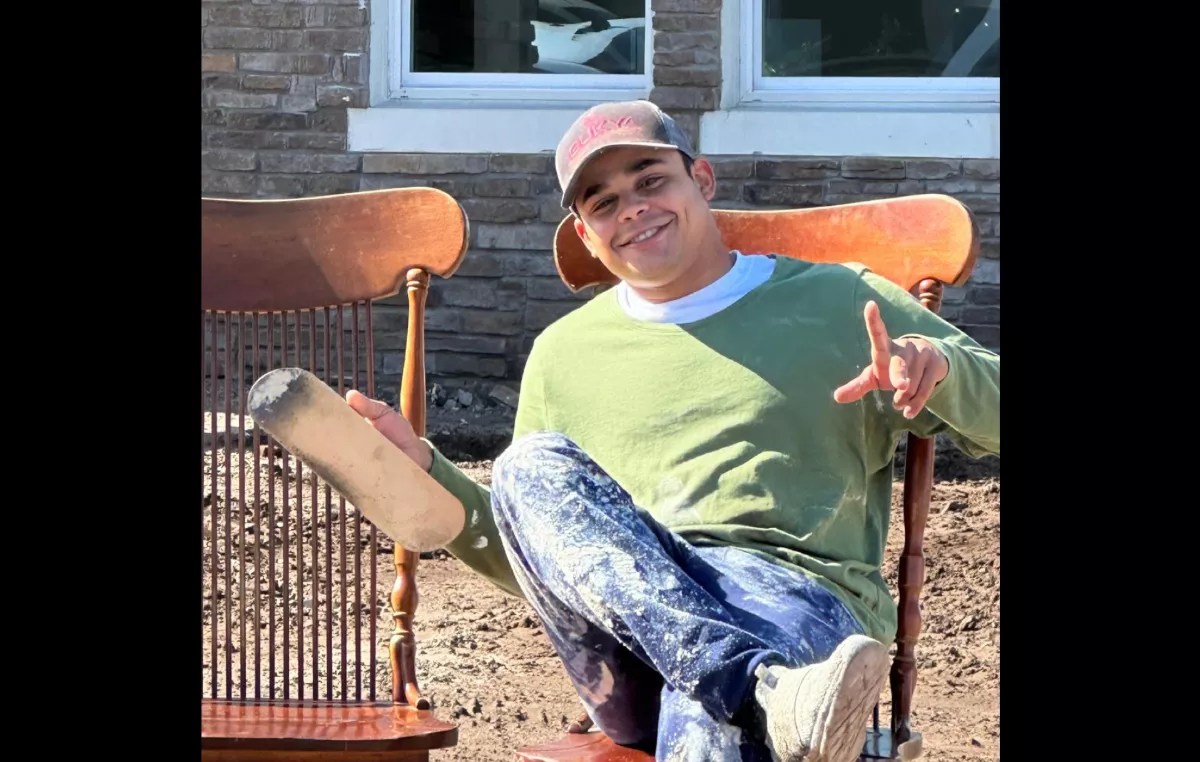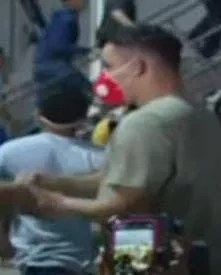
Photo by Angela (Marcano’s girlfriend)

Audio By Carbonatix
After spending more than 120 days inside a notorious prison in El Salvador, Luis Carlos José Marcano Silva was among the scores of Venezuelan migrants released to their native country on Friday as part of a three-nation prisoner exchange.
In March, 26-year-old Marcano was living in Bradenton, Florida, with his girlfriend and young daughters when he was taken into United States Customs and Immigration Enforcement (ICE) custody and deported to a Salvadoran prison with little or no due process under the Alien Enemies Act – a controversial wartime law employed by President Donald Trump to target alleged members of a violent Venezuelan gang known as Tren de Aragua.
His girlfriend, Angela, previously told New Times that Marcano had arrived at a scheduled hearing at ICE’s Tampa office when he was taken into custody and vanished into a foreign prison. *Angela is identified only by her first name in this story to safeguard her identity.
As was the case with many of the other Venezuelan men brought to El Salvador, Marcano’s family insisted that he has no affiliation whatsoever with Tren de Aragua; they say he was in the process of seeking asylum through the country’s notoriously backlogged system when immigration officials detained him.
His family believed his tattoos, notably a crown inked on his chest, likely contributed to his deportation.
On Friday evening, Marcano was one of nearly 300 Venezuelan immigrants released from Centro de Confinamiento del Terrorismo (CECOT), the notorious mega prison in El Salvador, and flown to Venezuela as part of part of a prisoner swap coordinated by the United States, El Salvador, and Venezuela that released 10 jailed U.S. citizens and permanent residents held by the Venezuelan government.

Marcano’s mother spotted her son exiting the plane in TV news coverage of the flights arriving in Venezuela.
Photo by Marcano’s mother
Marcano’s mother spotted her son exiting a plane in TV news coverage of the flights arriving in Venezuela. She tells New Times that Marcano is currently staying at a hotel in La Guaria, a port city in Venezuela, while undergoing the reentry process.
While she’s only seen him via video call thus far, she hopes he’ll be cleared to join his family sometime this week in Margarita, the Venezuelan island where he was born.
“I feel happy, an indescribable emotion after seeing him free after all those months,” his mother wrote in a Spanish-language text message to New Times.
“Toda la honra ya la Gloria sean para Dios,” she added, which translates to: “All the honor and glory to God.”
According to photojournalist Philip Holsinger, who witnessed the men’s arrival at the El Salvador prison earlier this year, guards kicked, slapped, and shoved them, then shaved their heads. Packed 80 to a cell with bare steel planks for beds and no mats or pillows, they were forbidden to speak, read, or make phone calls.
“For these Venezuelans, it was not just a prison they had arrived at. It was exile to another world, a place so cold and far from home they may as well have been sent into space, nameless and forgotten,” Holsinger wrote in a March 21 dispatch published in Time. “Holding my camera, it was as if I watched them become ghosts.”
Born and raised on Venezuela’s beach-lined Margarita Island, 200 miles northeast of Caracas, Marcano left home as the country plunged into political, economic, and humanitarian crisis.

Angela, Luis, and their two young daughters.
Photo by Angela (Marcano’s girlfriend)
In November 2023, he and his girlfriend, Angela, along with their two young children, journeyed to Mexico and crossed the Rio Grande River on foot in search of a better life in the U.S.
The family soon traveled by bus to Bradenton, Florida, where they settled down and applied for asylum. But after living and working in the coastal city for almost two years – and experiencing no issues with the immigration system – Marcano was taken into ICE custody and deported to El Salvador in March.
Marcano wouldn’t be the only Venezuelan tied to Tren de Aragua, potentially over a tattoo.
Marcano has several tattoos: one, on his belly, depicts the face of Jesus of Nazareth; another, on his arm, displays an infinity symbol; a third bears the name of his daughter, Adelys. Angela says Luis got the crown tattoo with an ex-girlfriend in Venezuela when he was 19; his bears the phrase “Una Vida” (“One Life”), while hers says “Un Amor” (“One Love”).
Although experts have said tattoos don’t identify Venezuelan gangs and that tattoos aren’t closely connected with affiliation to Tren de Aragua, law enforcement officials have nonetheless included the five-point crown on a list of tattoos to help identify members of the violent gang.
While Marcano was held in the Salvadoran prison, residents from his hometown of Margarita rallied in the streets to demand his release.
One video shared on Instagram in mid-March shows Marcano’s tearful mother standing alongside her husband and other loved ones while holding a sign that reads, “Mi hijo no pertenece al Tren de Aragua. Justicia para Luis Carlos José Marcano Silva.” (Translation: My son does not belong to Tren de Aragua. Justice for Luis Carlos José Marcano Silva).
“Having a tattoo is not a crime,” she told the protesters.